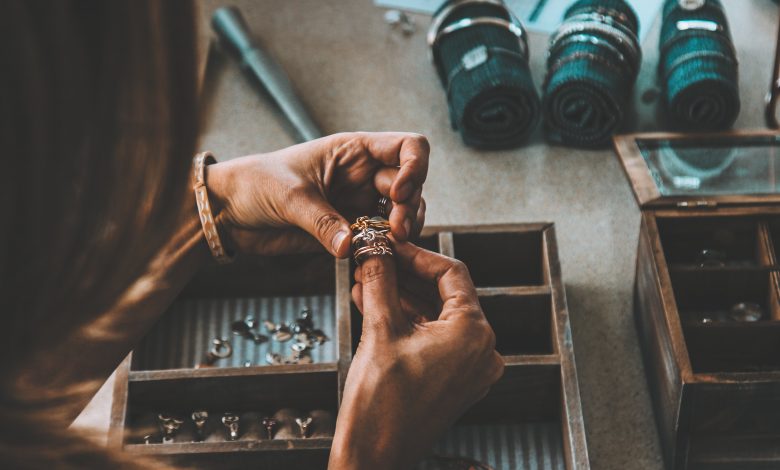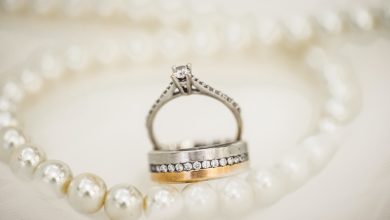
Insurance really is a great mystery to many. It’s not something one can break down in one afternoon. What’s more, many people make quite a few mistakes that cost them a lot of money before they figure out which insurance they need.
Most folks have no idea what their insurance doesn’t cover. They know the basics, of course. If the roof collapses, they are good — they have insurance. If there’s a fire, they are good — they have insurance. But what if someone steals one of their valuable items? Does regular insurance cover theft? Does one policy cover everything? Do they need a valuables insurance policy?
There’s no doubt that everyone has a thing or two that they deem invaluable. Some people have grandma’s wedding pearls or an engagement ring. Others proudly display their grandpa’s revolver from World War II. These are all items that are of great emotional and financial value. So it’s only natural that people want to protect these items in any way they can. And yet, sometimes, getting a valuables insurance policy doesn’t even cross people’s minds.
What Is a Valuable Item?
People trying to find what precisely a “valuable item” is won’t have much luck. The beauty is in the eye of the beholder, and so is value.
Some things, like jewelry or art, have a distinct value that’s easy to appraise. People can look at an item, check it, and slap a number under it. But some things can’t be assessed as easily as that. That’s why many insurance companies have their own definitions of the word.
What’s more, some companies aren’t willing to insure specific items. Or, better said, they aren’t keen on including specific goods in an “all-in-one” policy. Those who have fragile items can forget about including them into a regular policy. The same goes for people with items that are likely to get stolen. Those people need to get special coverage.
Doesn’t the Homeowner Policy Cover Everything?
Unfortunately, many people think their homeowner policies cover everything in their homes. They believe that it also includes all their valuables. Alas, that’s not the case.
Sure, the homeowner insurance policies cover potential loss or destruction of homes due to fire or theft, for example. After all, it’s always a smart idea to have a home insured because accidents happen (and so do malicious attacks). Still, just because a person has a homeowner’s insurance policy doesn’t mean they have everything covered.
Yes, many homeowner policies specifically mention valuables. Still, they are by no means an adequate coverage for all valuables. What’s more, these policies can have such low coverage that it might as well be nonexistent.
There’s an excellent reason homeowner’s insurance is affordable. The insurance companies will compensate losses to people according to the value of their homes. They might even offer valuables coverage for up to $1,000 or $2,000. Yet people with items that are worth more than that won’t get compensated for them. Why?
Well, homeowner’s insurance usually has a low premium. They are affordable because people don’t typically have items of extreme value in their homes. Sure, they might own some equipment, silver, or even a diamond or two. But no one has a Picasso hanging in their halls, right? And if they do, they can’t possibly think that home insurance will cover them! It has an average yearly premium of $1,500! How can that compensate for the loss or damage of a priceless item?
Of course, some companies offer bundles of insurance. For example, people can get home insurance that includes valuable items as well and doesn’t have low coverage. Although practical, that might not be the best option for everyone.
Sure, the person with the Picasso already knows they should get separate (high) valuables insurance. But this type of safeguard isn’t limited to people with million-dollar paintings.
What About Renter’s Insurance?
Unfortunately, things aren’t different with renter’s insurance. It’s critical to have a policy that will protect those who rent properties rather than own them. But when it comes to valuable items, renter’s insurance doesn’t go a long way.
Extra insurance is always a sound idea, especially for renters. Sure, the building and the apartment or a house themselves might be insured. But people still need to protect their belongings within the rented unit. That doesn’t include valuable items, though. Renter’s insurance has the same limitations that homeowner policies do. So it’s better than nothing, but definitely not enough for highly valuable items.
Why Opt for a Valuables Insurance Policy?
Items of high value must have individual insurance. What does a separate policy offer? Well, it will probably prove to be cheaper and safer for people with more than a few valuable items.
Sure, if someone has just a few items they want to insure, then maybe a separate policy isn’t necessary. Say they only have a wedding band and an engagement ring to insure. What should they do? Well, they can talk to their insurance company and add those items to their homeowner policy. But a person that has an entire room of antiques? They might find their premium rising rapidly if they add all their valuable items to it.
What’s more, people with a lot of valuables have to make sure they are all listed in the policy. Each item has to be cataloged and mentioned explicitly in the plan — otherwise, it isn’t covered. And even then, people might run into more problems. For example, most companies have a claim limit for single items.
That means that the company is willing to compensate for the loss of all items, but only up to a certain point. This claim limit is often too low to cover the real value of items. It is usually around $1,000 or $1,500. That, generally, doesn’t cover even the most common valuables. Expensive watches and jewelry usually cost more than that, not to mention artwork and antiques.

What Will the Separate Valuables Insurance Policy Cover?
Someone might think that the holiday decorations their grandma brought from the Old World are priceless. And to them, they most likely are. But those are actually easily replaceable items. Or at least an insurance company thinks so. These include:
- Holiday decorations
- Computer equipment
- Toys
- Unfinished projects
Of course, people can still insure them as valuables. They can protect specific items they own because of emotional attachment. All they have to do is add them to their regular policies.
A separate valuables insurance policy will cover other valuable items:
- Jewelry, including stand-alone diamonds, watches, rings, and other pieces
- Collections of coins or stamps
- Fur coats and all real-fur clothing items
- Antique furniture and collectibles
- Antique and modern firearms
- Fine artwork
- Collectible items
- Antique and modern instruments
- Silverware and other valuable cutlery (such as gold plated plates and cutlery)
- Sports and other equipment
- Expensive wines and spirits
Ideally, every item that a person wants to insure should have adequate documentation. Proof-of-purchase documents that list the specifics of the item will help with the appraisal. This includes receipts, certifications, invoices, and any other documents. They will also speed up the process of getting the piece insured.
Of course, not everyone can produce a receipt for every valuable item they own. That’s especially true for antiques that have been in the family for decades. That isn’t necessarily an issue, but it might prolong the appraisal. What’s more, the owner might disagree with the insurance company about the appraised value of an item. If they have no proof of value, they won’t have anything to back up their claim.
Home Inventories
Before they do anything else, people need to appraise their things. They also have to make a detailed inventory. That will make the entire process easier and faster. It’s also the perfect way for people who have a lot of stuff to keep track of everything and its value.
But those aren’t the only reasons assessment matters. Sometimes, people think all their stuff is ordinary. But it turns out, some people really have hidden gems among their things. Of course, many people fantasize about getting rich by discovering a family heirloom that will bring them millions. But let’s just say that’s not that common. Still, some people may be surprised by the actual value of their items. That’s why it’s always an excellent idea to ask for professional help with the appraisal. Once people know the value of everything they own, they can make a home inventory.
A home inventory list itemizes all personal belongings someone has. Of course, it doesn’t have to actually include absolutely everything someone owns, since everyone has trinkets that don’t really matter. However, the list should consist of all the valuable items a person owns. What’s more, the owner should update the list frequently or at least after every significant purchase.
A good home inventory list has:
- Name and location of the item
- A detailed description of the item (with a picture, if possible)
- Serial numbers, distinct features of the item, make, and model (if applicable)
- A detailed history of the item
- Should include the documentation if it was purchased (date and location of purchase, as well as receipts, certifications, etc.)
- If the item was a gift, then other necessary details (who gifted it, when, proof of inheritance, etc.)
- Evaluation and appraisal proof and documentation
A home inventory will be the necessary proof in case a person loses something to theft or destruction. It will also allow the owner to make a claim to their insurance company.
People who are already rolling their eyes at the thought that they have to write all this stuff down shouldn’t worry. There are many apps out there that will help people finish a home inventory list quickly. Most of them are free and have a lot of features that allow people to categorize their items, attach images, notes, etc.

What Does a Valuables Insurance Policy Provide?
Buying separate insurance for valuable items means getting peace of mind. It means that people’s assets are protected against perils. That includes fire, flood, and other natural disasters. It also covers theft and physical damage caused by elements or accidents.
Sure, as mentioned, people can add all valuable items to their home insurance. After all, those already offer protection in the cases discussed above. And yet, many people did that exact thing, only to be left empty-handed after disaster struck. Home insurance policies offer limited coverage. What’s more, they also have specific clauses that force owners to meet particular conditions. If they don’t, they won’t be able to claim the insurance money.
Valuables insurance policies also offer protection against accidents. That’s a lot more than the regular insurance does. Accidents happen, and there’s no way to avoid them. People who have fragile, valuable items can accidentally damage them. Antiques are fragile! They’ll be crushed, of course, but also short one expensive item. Will regular insurance cough up the money to compensate for that? Of course not.
Now, this statement isn’t an attack on home insurance. Just because they don’t provide coverage for everything doesn’t mean they are bad. But the fact of the matter is that they aren’t enough for some people.
Safety Precautions
Some home insurance policies that allow people to include valuable items in them also have a few limitations. For example, people need to keep their valuables in a safe. Don’t have a safe? Well, that’s not the insurance company’s problem.
But that’s not all. People also need to have top-notch security. Homeowner policies expect people to protect themselves from theft by all possible means. Otherwise, they won’t get a payout.
So what happens if someone has an item stolen from their home? Well, they should go to cash in on that hefty insurance, right? Yes, absolutely. But they might find the insurance company unwilling to comply. They’ll ask whether the item was safely stored. Then, if they find that the safety precautions the owner took weren’t sufficient (by their standards), they’ll refuse payment. That can’t happen with a valuables insurance policy.
Does It Cover Everything?
No insurance policy covers everything. But plans that offer coverage for valuables are often quite extensive. They won’t insure everything an owner can think of, but they’ll provide protection in most cases.
Here’s the thing. If a person has specific needs, the insurance company will often bend over backward to meet them. Of course, this treatment comes at a price.
Standard Coverage Options

Traveling Abroad?
Most standard valuables insurance covers people’s items of worth during travel. Still, each owner needs to check the fine print of their policy to make sure that’s actually the case. What’s more, people often find that their policies only protect jewelry and electronics while traveling. So they should find out if their valuables are insured outside of their homes.
Deductibles
Finally, some good news! Standard policies for valuable items usually don’t include deductibles. People can include them, of course, if they so choose.
Replacement Cost Coverage
There’s a massive difference between getting a “cash value” insurance and a “replacement cost” one. Here’s a perfect example. Let’s say Jerry paid $2,000 for a new computer. It’s a valuable item, so it was included on the list for insurance.
Two years after the purchase, someone stole Jerry’s computer. So what does Jerry do? He files a claim with his insurance company, of course. But at the moment of the claim (and theft), the computer was no longer worth $2,000. Two years can make a vast difference in the price of used electronics. So, after two years, Jerry’s computer was only worth $1,000. That was the cash value of that particular item at the time of the claim.
Valuables insurance policies cover owners and offer replacement cost coverage. That means that Jerry will get compensated for the full amount he paid when he bought the computer. The cash value and deflation of prices don’t matter when people have the right insurance.
Special Coverage Options

Inflation Coverage
Some people are in it for the long haul. That means they want their items protected for a long time and are aware of potential inflation. One of the unique coverage options is the inflation cover. This feature automatically adjusts the claim limits according to inflation.
Wedding Gift Coverage
Temporary valuables insurance is also an option. Some newlyweds choose to insure their presents for a limited time around their wedding.
The best thing about this feature is that it expires in 90 days. It’s an excellent way for people to stay insured even with the added wealth that comes in forms of wedding gifts. The value of people’s home contents rises quickly right before or after a wedding. Guests send or bring gifts of various values, thus, increasing the newlyweds’ wealth.
Some might be wondering why they need coverage before the wedding. Well, the bride and the groom can’t exactly appraise all the gifts and get insurance for them during the reception. What’s more, they’ll have to take them home right after the reception. So no time to make a pit stop at an insurance agency, right? And what if someone robs them? People often take wedding gift coverage along with their valuables insurance to protect themselves in these kinds of situations.
Updates Matter
Once a person gets their valuables insurance, they can rest easy knowing that their items are safe. Still, that doesn’t mean they can forget about it altogether.
People are hoarders. Many love buying new things! Even the minimalists will purchase something new every now and then. That’s why people need to continually update their home inventories and revisit their valuables insurance from time to time. That’s especially true for collectors.
Everyone should set a bit of time aside once a year and check whether their policy reflects their current lifestyle. Maybe they have fewer valuables than before and don’t need a special policy. Or perhaps they accumulated a lot of stuff since signing on the dotted line. Either way, valuables insurance isn’t something to get and forget about.
A Benefit to Those with Valuables
Getting valuables insurance might seem like a hassle to some. But those people who have a lot of valuable items will find that it saves time, energy, and money. Sure, they have to set aside some time, research all policies and companies, make an inventory, and all that jazz. Sooner or later, they’ll find the perfect one. Once they do, they’ll find they actually saved quite a bit of money. To top it all off, they’ll have better protection than they would with an add-on to regular home insurance.



